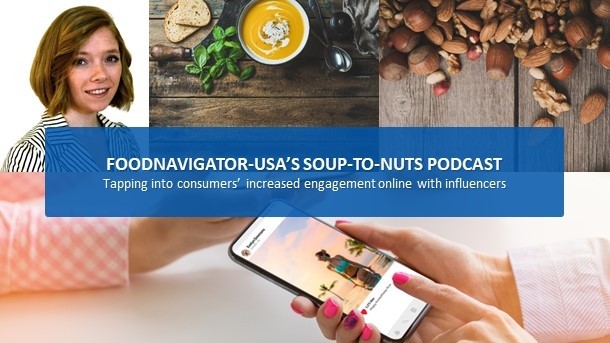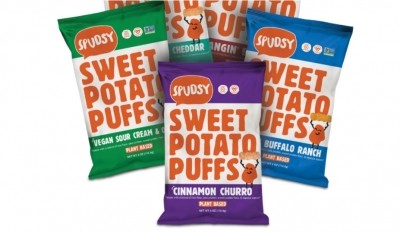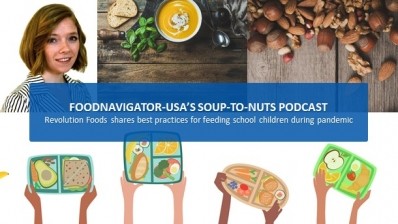Soup-to-Nuts Podcast: Social media influencers offer economical access to consumers during pandemic

According to a survey of 1,000 influencers conducted by the digital marketing and communications agency A&E, consumer engagement with influencers across social media platforms surged on average 51.3% from when the pandemic was declared in March through June. On average, influencers also reported a 67.1% jump in ‘likes’ of their online content.
At the same time, many influencers have kept their prices the same or only raised them slightly since the pandemic began for an average increase of 3.1% per 1,000 followers compared to pre-COVID. According to A&E’s co-founder and chief operating officer Elma Beganovich this means brands are now able to reach significantly more consumers for the same budget as they would have pre-pandemic.
In this episode of FoodNavigator-USA’s Soup-To-Nuts podcast, Beganovich discusses how the coronavirus pandemic has impacted digital marketing, strategies for effectively partnering with and managing social media influencers and pitfalls to avoid.
[Editor’s Note: Never miss another episode of FoodNavigator-USA’s Soup-to-Nuts podcast – subscribe on iTunes.]
‘Presence online has surged … even as far back baby boomers’
With in-store demos, sampling at events and many other marketing strategies that food and beverage companies previously relied on to drive initial trial and consumer engagement now off the table thanks to social distancing requirements, Beganovich recommends companies invest more heavily in digital marketing and, in particular, social media influencers.
“In terms of the pandemic’s effects on influencer and social media marketing, the active base of users and presence online has surged. I know Facebook has reported that for Instagram and Facebook Live, this was in late March, there has been double the views. And then we know from other data there’s been at least a 40% increase in impressions and YouTube reported a 500% increase in basically daily active users,” she explained.
At the same time, more people are ordering food and beverages online, “so it makes all the more sense for brands to be investing digital marketing and social media and influencer marketing because now, it is basically this direct shopping,” she added.
To effectively leverage the potential offered by social media influencers, Beganovich says, brands first must identify their target consumers, understand their values and then find influencers who share their interests and the brand’s values.
She also notes that the number of followers an influencer has isn’t everything because they might have fewer followers but those followers may be more influential or higher quality.
‘Offer them something that’s enticing’
Social media influencers also can be a savvy bet for emerging brands because they often are open to “creative” payment – meaning they don’t always require cash, but often are happy to work in exchange for product or an experience.
However, Beganovich cautions that this can be more difficult for food and beverage companies to negotiate than luxury goods or services because the value of food is less than a trip or day at the spa.
But there are options. Companies can create monthly subscriptions of products to share with influencers, partner with other brands to increase the value of payment without increasing the cost or offer them credit for product that they can spend when they are ready.
Common pitfalls to avoid
When crafting a social media plan – whether or not it relies on influencers – Beganovich cautions brands to avoid several common missteps, including underestimating the demand of managing social media and hiring someone inexperienced to oversee it.
“Social media has really evolved,” and now demands more than an entry level professional might be able to offer, she said. Rather, she recommends hiring someone in the $65,000 range, which again can be in the form of a salary or other creative payment options.
Another common mistake that Beganovich says she sees – especially among younger brands with limited budgets – is ending a social media campaign before it can take root.
To help brands walk the line between cutting a campaign short prematurely and cutting their losses with a failing endeavor, Beganovich advises companies to set clear goals and key performance indicators, just as they would for an employees.
While crafting an effective digital marketing campaign and finding the right influencers can be time consuming, Beganovich says the investment is well worth it – not only as a way to bide time during the pandemic but because she believes that consumers are increasingly comfortable engaging with brands digitally and she doesn’t see that changing once the coronavirus is under control.









